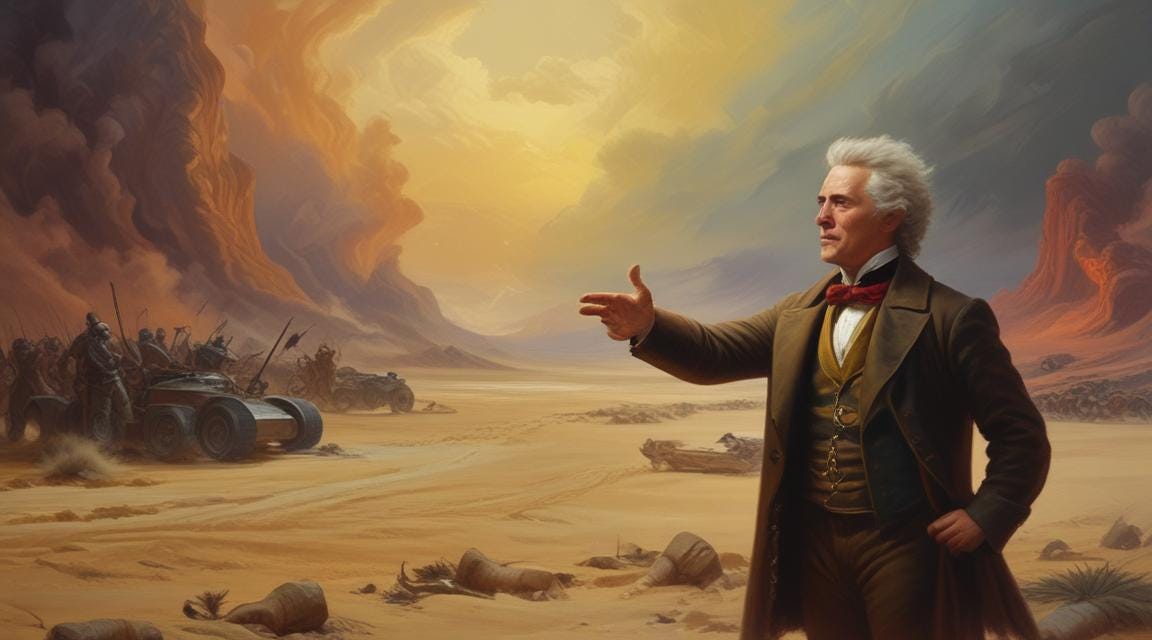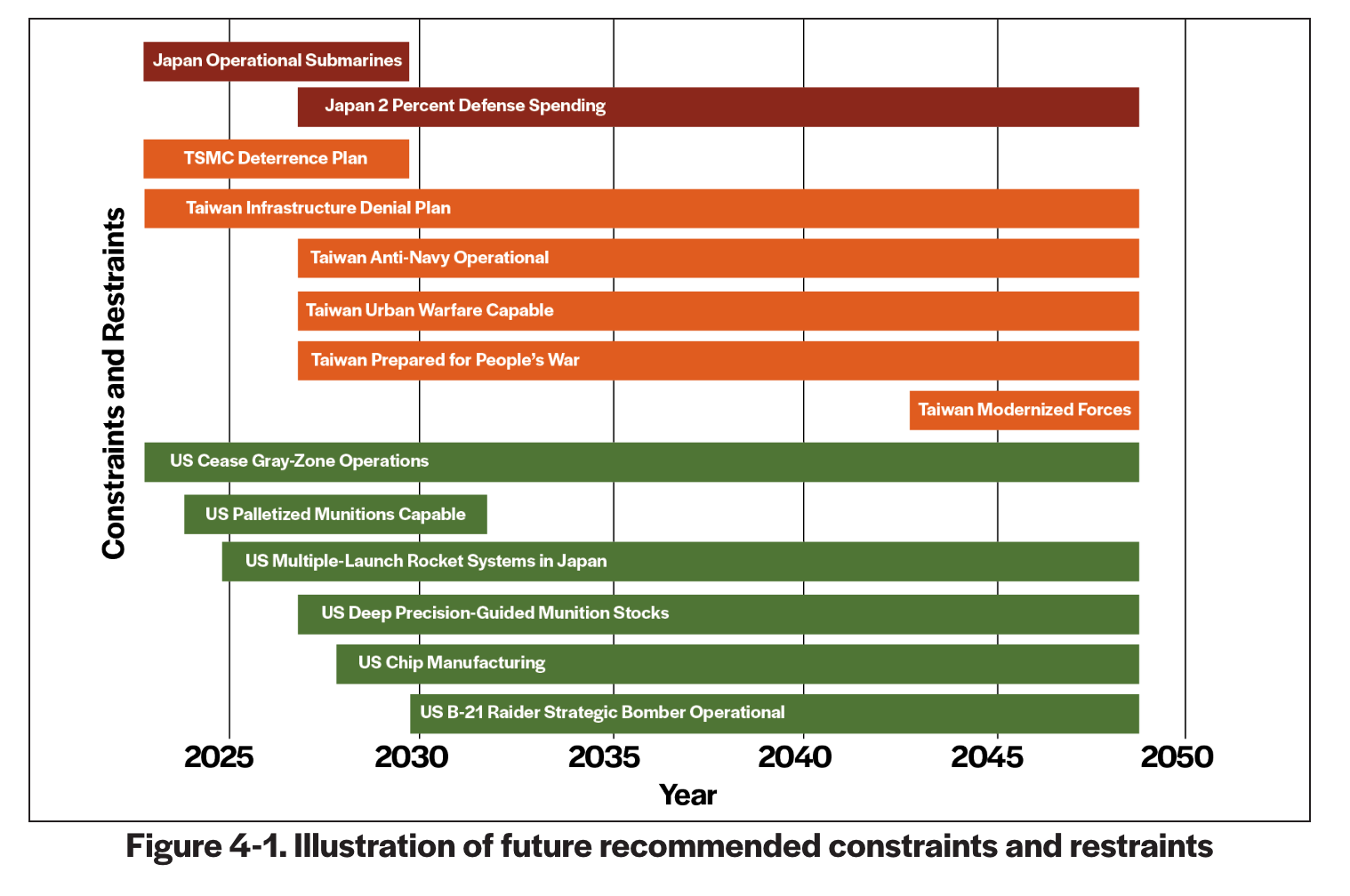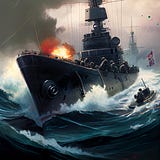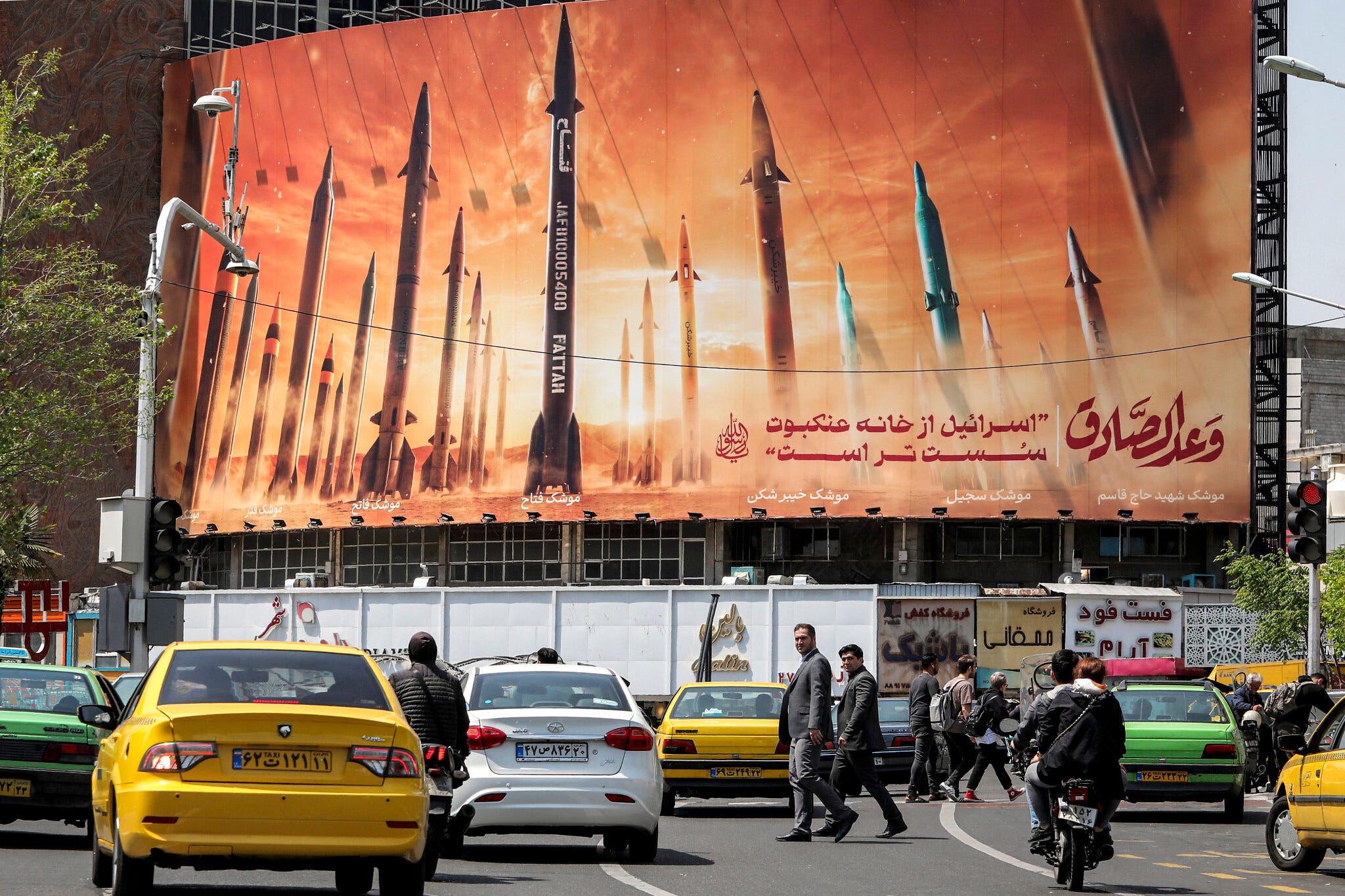H-Diplo: New posted content
H-Diplo: New posted content
H-Diplo|RJISSF Review Essay 101: Zhu on Leoni, _Grand Strategy and the Rise of China_
H-Diplo | Robert Jervis International Security Studies Forum
Review Essay 101
Zeno Leoni. Grand Strategy and the Rise of China. Newcastle: Agenda Publishing, 2023. ISBN 9781788216029 (paperback, $30.00).
Reviewed by Zhiqun Zhu, Bucknell University
4 June 2024 | PDF: http://issforum.org/to/RE101 | Website: rjissf.org | Twitter: @HDiplo
Editor: Diane Labrosse | Commissioning Editor: Masami Kimura | Production Editor: Christopher Ball
Observers can hardly reach a consensus about contemporary China. Scholars, journalists, and government officials often present totally different images of China. Some foresee China’s impending replacement of the United States as the global power; others predict China’s looming economic collapse and political breakdown.[1]Like the six blind men in an Indian parable who draw their conclusions about an elephant by only touching parts of the giant animal, many observers only see some aspects of China and rush to their conclusions about the vast country.
In Grand Strategy and the Rise of China, Zeno Leoni asserts that it is not possible to study modern and contemporary China in isolation from its relationship with the West (vii). The aim of this book is to help Western citizens reflect critically on China with a sober, historically and theoretically informed view of the drivers and implications of its rise (2-3). Leoni rejects using the dichotomy of liberal democracy and autocracy as a superficial and very American perspective from which to analyze a highly complex phenomenon of China’s rise. Informed by his post-doctoral research on China and his teaching at the Defense Studies Department of King’s College London as well as extensive archival work, Leoni goes beyond Western-centrism and presents a diverse world order in which China and the rest of the world have co-existed.
After analyzing the successes and limits of China’s engagement with the global economy and discussing the dilemmas of the China-West engagement, Leoni offers some recommendations for western governments for developing their policies on China, taking into account China’s long interactions with the West, its relationship with the liberal international order (LIO), and its achievements and failures at home. For a brief book (only 103 pages), the author does a remarkable job in presenting and defending his main thesis.
The author’s analysis of the tensions between sovereignty and globalization and between economic and security interests is particularly informative and insightful. Due to its humiliating history since the Opium Wars in the 1840s, China today is super-sensitive to issues concerning national sovereignty. For example, while many outsiders view developments in Hong Kong in recent years as issues of human rights and democracy, the Chinese government views them as the efforts by some locals and hostile foreign governments and individuals to erode China’s sovereignty over a former British colony that has already been returned to China.[2]
Indeed, the post-Mao China has taken full advantage of globalization and has been integrated into the LIO. China is arguably the country that has benefited the most from the current LIO and has emerged as a strong defender of globalization.[3] Yet, the friction between sovereignty and globalization is real, and it has been a challenge for China and others to reconcile the inherent contradictions. The competition between security and economic interests was on full display during the November 2023 Asia-Pacific Economic Cooperation (APEC) summit in San Francisco. After US President Joe Biden and Chinese President Xi Jinping spent hours discussing military dialogue, AI governance, climate change, and other security-related issues, Xi spoke at a reception and was warmly welcomed by over 300 American business executives, officials, and other individuals who favor strong commercial and cultural ties between the two countries.[4]
As the author correctly points out, such inherent tensions help us understand many of the problems between China and the Western governments. For example, when China defends its sovereignty in the controversial South China Sea, Western governments tend to accuse China of not following the rules-based international order. Ironically, China has a better record of adhering to the UN Charter than some Western countries such as the United States, Greece, and France.[5]
The fact is that China has been an essential part of the LIO. Without US President Richard Nixon’s visit to China that fundamentally changed the course of the Cold War, and without post-Mao leader Deng Xiaoping’s reforms that resulted in some 800 million Chinese being lifted out of abject poverty, the so-called LIO would not have been complete and successful. Given China’s deep interdependence with the global economy and its self-identity as a capitalist champion, for Western countries, rejecting, containing, or fighting China implies “challenging [the Western] way of life” (3), the author reasons.
Leoni urges Western countries to be “honest and pragmatic” and to “avoid picking fights over issues China does not intend to negotiate on and that are highly symbolic, such as Taiwan” (101). This is spot on and reveals a fundamental and potentially explosive problem in China’s relations with the West, especially in US-China relations today. The Taiwan issue is left over from the unfinished Chinese Civil War in the 1940s. After being defeated on the mainland and after Communist leader Mao Zedong proclaimed the founding of a “new” China—the People’s Republic of China (PRC), the Nationalist Party (KMT) leader Chiang Kai-shek left the mainland and moved his Republic of China (ROC) government to Taiwan temporarily, vowing to “retake” the mainland (光复大陆) in the future. Meanwhile, Mao believed the PRC succeeded the ROC as the only legitimate government of China and was prepared to “liberate” Taiwan (解放台湾). The Korean War that broke out in June 1950 disrupted Mao’s plan and prolonged Chiang’s rule in Taiwan. Since then, Beijing and Taipei have engaged in a diplomatic battle over who is the real representative of China.[6]
France became the first Western country to recognize the PRC over the ROC in 1964. After Nixon’s historic visit to China in 1972, it became clear that the United States would switch diplomatic recognition from Taipei to Beijing, which it eventually did at the end of 1978 while acknowledging that Taiwan was part of China. Since then, Taiwan has gradually democratized, and a growing number of Taiwanese today enjoy Taiwan’s status as a de factoseparate entity from mainland China. Nevertheless, the two sides of the Taiwan Strait have never become two independent states as agreed upon by themselves and accepted by the international community.[7]
Many observers in the West view China’s long-standing policy of seeking reunification with Taiwan as an aggressive and expansionist behavior. Without providing the historical context, some scholars tend to use “invasion” to describe Beijing’s potential use of force to take Taiwan, as if China will attack and occupy a foreign country.[8] From Beijing’s perspective, this is purely a Chinese internal matter, but foreign intervention has perpetuated the separation of Taiwan and the Chinese mainland. Beijing’s preferred policy has been pursuing reunification peacefully. If unprovoked, Beijing is unlikely to use force against Taiwan.[9] One does not have to agree with Beijing’s views, but it is important to understand where Beijing comes from in order to appreciate the complexity of the Taiwan issue and develop a reasonable and balanced approach.
Taiwan is highly symbolic in Chinese politics. It brings back bitter memories of imperialism. Taiwan was ceded to Japan as a colony after the Qing dynasty lost the 1894–1895 war with Japan. It was returned to China in 1945 when Chiang was still in power on the mainland. Taiwan is closely tied to the so-called “century of humiliation” in Chinese history, therefore, no Chinese leader can afford to “lose” Taiwan permanently under his watch.[10] The current LIO includes recognition by the UN and other international organizations and vast majority of UN members that Taiwan is a part of China, not an independent state. However, some countries, especially the United States, seem to have upgraded their “unofficial” relations with Taiwan in recent years, leading Chinese leaders to question whether these countries are serious about their official “one China” policy. “If the international order cannot help protect China’s sovereignty over Taiwan, most Chinese would not find any reason for China to care about that order,” a leading international relations scholar in China recently declared.[11]
China’s rise inevitably challenges the Western-dominated LIO, although it is debatable whether China is a status quo power or a revisionist power. After becoming the second largest economy in 2010, China has proposed several initiatives in global development, such as the Belt and Road Initiative (BRI) and the Asian Infrastructure Investment Bank (AIIB). Some observers cite these as evidence that China is disrupting the LIO and seeks to replace the United States as the global power.[12] However, one can argue that such initiatives are being implemented within the current global system and have been supported by many countries and the United Nations. Some countries have decided not to be part of these Chinese initiatives, yet interestingly, they have developed similar programs to counter or compete with China, such as the Biden administration’s “Build Back Better World” and the proposed India-Middle East-Europe Economic Corridor.[13]
Going beyond the dichotomy of democracy vs. autocracy that is prevalent in some analysis of world affairs today, especially by the Biden administration and some Western scholars,[14] Leoni suggests that in fact “socio-political hybridity” has been part of the international system (12). China is such a case of hybridity. Different societal and economic models may co-exist in a country or region. China, with all its internal dynamics and regional gaps, is not a monolithic entity, even though it is controlled by the Communist Party.
Leoni is correct in suggesting that China has been grappling with the three Cs—Confucianism, Communism, and capitalism (26). Indeed, Chinese officials have always been fascinated by capitalist successes. China has learned much from Singapore’s founding father Lee Kuan Yew’s model of paternalistic or “soft” authoritarianism. It has also imitated the “developmental state” model first practiced in Japan and then in the four Asian Tigers.[15] The term “socialism with Chinese characteristics” is a helpful interpretation of the state the Chinese government has been trying to create. Or perhaps China is moving towards building “capitalism with Chinese characteristics.” China’s development trajectory is categorically different from those of the Western models.[16]
To develop a viable China strategy, foreign governments need to have an objective and comprehensive understanding of contemporary China that is grounded in the history of China and its interactions with the West. China’s rise is concurrent with the emergence of a multipolar world, in which non-Western countries, or the Global South, are playing a more prominent role in modifying the international order that reflects the rising voices of developing countries. Like other powers, China has agency in contributing to and shaping the international system. The BRI and AIIB are examples of China’s contributions to the emerging new international order that is increasingly multipolar. If Western powers do not recognize China’s agency, they will not be able to develop a realistic and viable China strategy.
Though Leoni points out problems in Western thinking about China, he does not indicate what exactly the West can do in dealing with the China challenge. His narrative also leaves undiscussed China’s agency to change for the better. As a stake-holder in the current LIO, China has actively pursued economic engagement in the LIO while maintaining a rigid political structure at home. Is this in China’s best interest? Can China do better?
The Chinese government argues that it does not reject democracy and human rights as universal values but emphasizes a path to human rights development that suits China’s own conditions.[17] Yet one sees no sign that China is moving in the direction of greater freedom and democracy now. While the West must be sensitive to China’s history and culture and should not provoke China on issues such as Taiwan, China also has a responsibility to reciprocate and meet the West half-way. The West must continue to apply pressure while remaining engaged with China, perhaps more diplomatically, to achieve a successful outcome for both China and the rest of the world. In other words, the West should not just develop a China strategy passively; it can seek a more proactive approach to shape the environment conducive for China’s political transformation.
In short, the West faces two challenges in developing a practical China strategy. First, it needs to acknowledge and welcome China’s contribution to global development, including its effort to introduce a more inclusive international system. Second, it must keep the pressure on without triggering strong nationalist responses from Beijing so that China can move in the direction of a more liberal society. Leoni’s book alludes to these challenges and mentions that countries should “retaliate where Beijing restricts the space for freedom and to expand (cooperation) where Beijing is willing to compromise” (102), but it is unclear where the Goldilocks point is. Essentially, how will the Western governments balance their security and economic interests? Leoni’s book does not provide clear answers but points in the right direction. Perhaps therein lies the significance of this succinct book.
Zhiqun Zhu, PhD, is Professor of Political Science and International Relations at Bucknell University. He is the author or editor of over a dozen books on Chinese foreign policy, US-China relations, and East Asian political economy.
[1] For competing perspectives on contemporary China, see for example, Ann Lee, Will China’s Economy Collapse?(Boston and New York: Polity, 2017). Michael Pillsbury, The Hundred-Year Marathon: China's Secret Strategy to Replace America as the Global Superpower (Ashland, OR: Blackstone, 2015). Keyu Jin, The New China Playbook: Beyond Socialism and Capitalism (New York:Viking, 2023). Barry J. Naughton, The Chinese Economy, 2nd edition (Cambridge, MA: MIT Press, 2018). Justin Yifu Lin, Demystifying the Chinese Economy (New York, NY: Cambridge University Press, 2011).
[2] Lindsay Maizland, “Hong Kong’s Freedoms: What China Promised and How It’s Cracking Down,” Council on Foreign Relations, 31 January, 2024. https://www.cfr.org/backgrounder/hong-kong-freedoms-democracy-protests-china-crackdown#:~:text=Under%20the%20Basic%20Law%2C%20Hong,and%20Political%20Rights%20(ICCPR). Vivian Wang and Tiffany May, “Hong Kong Pushes New Security Law to Root Out ‘Seeds of Unrest’,” The New York Times, 30 January, 2014. https://www.nytimes.com/2024/01/30/world/asia/hong-kong-security-law-unrest.html
[3] See for example, Huiyao Wang and Alistair Michie, eds. Consensus or Conflict?: China and Globalization in the 21st Century (New York: Springer, 2021).
[4] Ana Swanson, “Pandas, Ping-Pong and Profits: Chinese Leader Woos U.S. C.E.O.s,” New York Times, 16 November, 2023, https://www.nytimes.com/2023/11/16/business/economy/china-us-business-xi-jinping-ceos.html.
[5] Jeffrey D. Sachs and Guillaume Lafortune, “Adhering to the UN Charter: Barbados First and the United States Last,” Common Dreams, 13 November, 2023, https://www.commondreams.org/opinion/multilateralism-index-united-nations.
[6] Zhiqun Zhu, “‘One China’ in the Beijing-Washington-Taipei Trilateral Relationship,” The Asia-Pacific Journal, Volume 20, Issue 2, Number 3 (January 15, 2022): https://apjjf.org/2022/2/Zhu.html, accessed 19 February, 2024.
[7] Zhu, “’One China’ in the Beijing-Washington-Taipei Trilateral Relationship.”
[8] For example, Robert Manning, “Is a Chinese Invasion of Taiwan the Most Likely Scenario?” The Stimson Center, 23 October 2023, https://www.stimson.org/2023/is-a-chinese-invasion-of-taiwan-the-most-likely-scenario/.
[9] See for example, Jessica Chen Weiss, “Don’t Panic about Taiwan: Alarm Over a Chinese Invasion Could Become a Self-Fulfilling Prophecy,” Foreign Affairs (21 March, 2023): https://www.foreignaffairs.com/china/taiwan-chinese-invasion-dont-panic, accessed 19 February, 2024.
[10] Chen Weiss, “Don’t Panic About Taiwan.”
[11] Qingguo Jia, “Reconstructing China’s Role in Regional Security,” East Asia Forum (6 November 2022): https://eastasiaforum.org/2022/11/06/reconstructing-chinas-role-in-regional-security/, accessed 19 February, 2024.
[12] See for example, Simon Curtis and Ian Klaus, The Belt and Road City: Geopolitics, Urbanization, and China’s Search for a New International Order (New Haven, CT: Yale University Press, 2024).
[13] Keith Johnson, “Belt and Road Meets Build Back Better,” Foreign Policy, 4 October 2021. Jean-Loup Samaan, “The India-Middle East Corridor: a Biden Road Initiative?” The Atlantic Council, 6 October 2023.
[14] Robert Manning, “Does Biden’s ‘Democracy v. Autocracy’ Framework Make Sense?” The Hill, 13 June, 2022.
[15] John B. Knight, “China as a Developmental State,” The World Economy 37:10 (October 2014): 1335-1347.
[16] Yasheng Huang, Capitalism with Chinese Characteristics: Entrepreneurship and the State. Cambridge University Press, 2008.
[17] Qin Gang, “Following a Chinese Path of Human Rights Development and Contributing China’s Strength to Global Human Rights Governance,” Remarks at the High-level Segment of the 52nd Session of The United Nations Human Rights Council, 27 February 2023, https://www.fmprc.gov.cn/eng/wjdt_665385/zyjh_665391/202302/t20230228_11032426.html.
================







